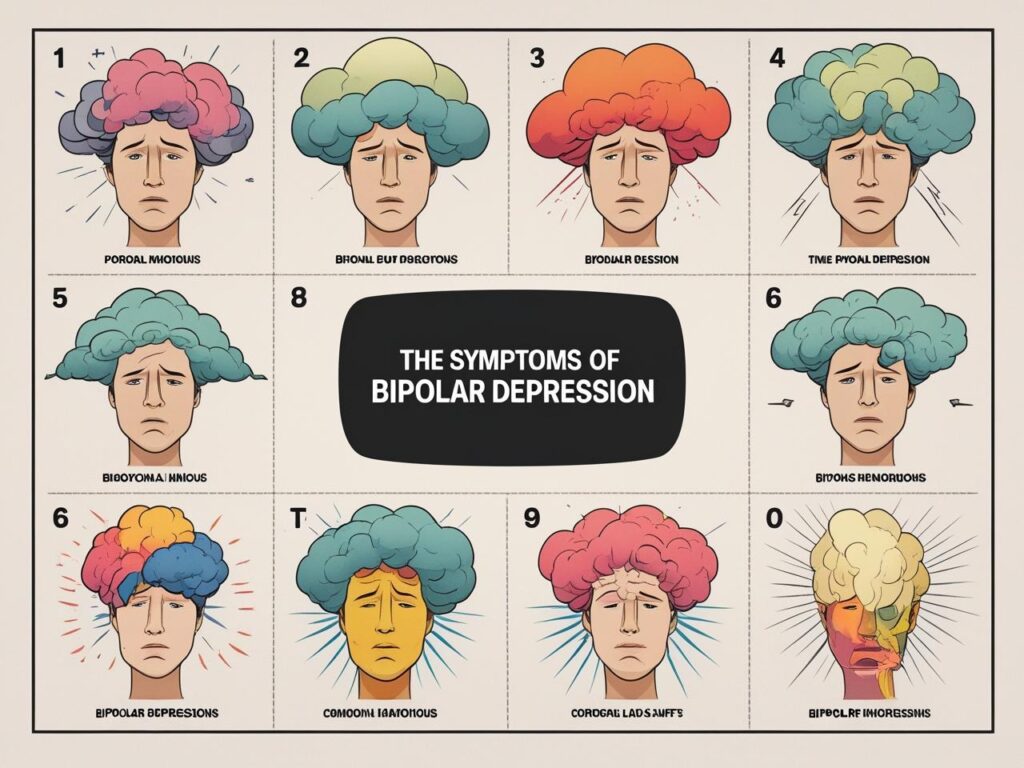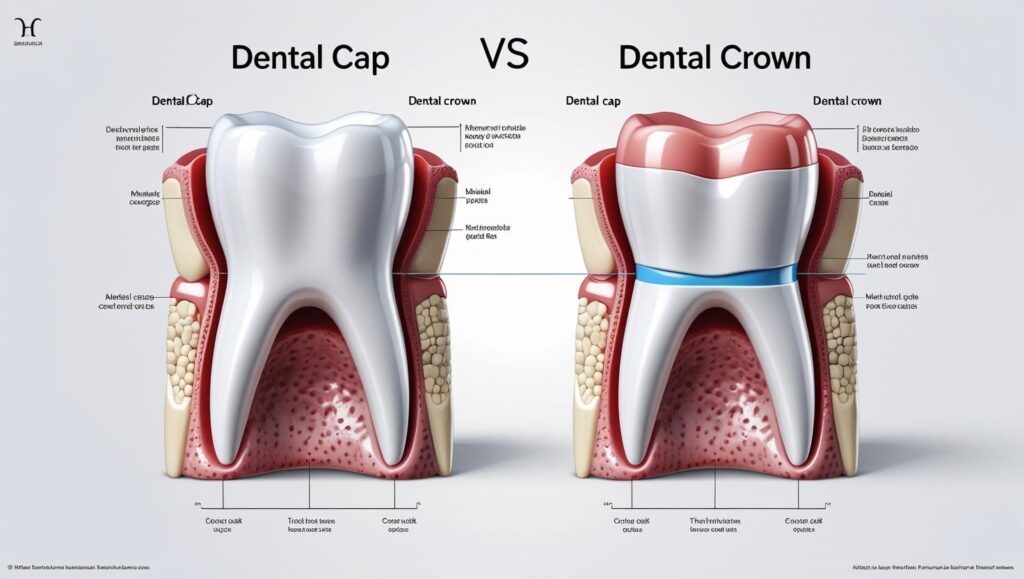10 Signs of Bipolar Depression: A Comprehensive Guide to Recognition and Treatment
Bipolar disorder affects millions of people worldwide, and recognizing the signs of bipolar depression is crucial for early intervention and effective treatment. Understanding these symbols of bipolar depression can help individuals, families, and healthcare providers identify when professional support is needed. This comprehensive guide explores the ten most significant symbols of bipolar depression, their causes, effects, and available treatment options. Understanding Bipolar Depression Bipolar depression represents one phase of bipolar disorder, characterized by extreme mood swings between manic or hypomanic episodes and depressive episodes. The signs of bipolar depression differ from typical depression in several key ways, making accurate identification essential for proper treatment. Unlike unipolar depression, the symbols of bipolar depression often include specific patterns and triggers that healthcare professionals use for diagnosis. The depressive episodes in bipolar disorder can be particularly challenging because they often last longer than manic episodes and significantly impact daily functioning. Recognizing the signs of bipolar depression early can prevent complications and improve long-term outcomes for individuals living with this condition. The 10 Key Signs of Bipolar Depression 1. Persistent Sadness and Hopelessness One of the most prominent signs of bipolar depression is overwhelming sadness that persists for weeks or months. This isn’t ordinary sadness but a deep, pervasive feeling of despair that affects every aspect of life. Individuals experiencing this sign of bipolar depression often describe feeling empty, worthless, or completely hopeless about the future. Causes: This symptom results from chemical imbalances in the brain, particularly involving serotonin, dopamine, and norepinephrine neurotransmitters. Effects: Persistent sadness can lead to social withdrawal, relationship problems, and decreased work or academic performance. Treatment: Mood stabilizers, antidepressants, and psychotherapy are commonly used to address this sign of bipolar depression. 2. Extreme Fatigue and Low Energy The signs of bipolar depression frequently include debilitating fatigue that goes beyond normal tiredness. Individuals may sleep for extended periods yet still feel exhausted, struggling to complete basic daily tasks. Causes: Disrupted sleep patterns, medication side effects, and the body’s response to mood changes contribute to this symptom. Effects: Low energy impacts productivity, relationships, and overall quality of life, often leading to feelings of guilt and inadequacy. Treatment: Sleep hygiene education, energy management strategies, and appropriate medication adjustments help manage this sign of bipolar depression. 3. Loss of Interest in Previously Enjoyed Activities Anhedonia, or the inability to experience pleasure, is among the most telling signs of bipolar depression. Activities that once brought joy, such as hobbies, socializing, or intimate relationships, lose their appeal entirely. Causes: Changes in brain chemistry affect the reward system, making it difficult to experience positive emotions. Effects: Social isolation, relationship strain, and decreased self-care often result from this symptom. Treatment: Behavioral activation therapy and gradually reintroducing enjoyable activities can help address this sign of bipolar depression. 4. Significant Weight Changes The signs of bipolar depression often include dramatic weight loss or gain without intentional dietary changes. Some individuals lose their appetite completely, while others may overeat as a coping mechanism. Causes: Hormonal changes, medication effects, and altered eating patterns due to mood changes contribute to weight fluctuations. Effects: Weight changes can affect self-esteem, physical health, and social interactions. Treatment: Nutritional counseling, monitoring medication side effects, and addressing underlying mood symptoms help manage this sign of bipolar depression. 5. Sleep Disturbances Sleep problems are hallmark signs of bipolar depression, manifesting as either excessive sleeping (hypersomnia) or difficulty sleeping (insomnia). Many individuals experience both patterns at different times. Causes: Disrupted circadian rhythms, stress hormones, and brain chemistry imbalances affect sleep regulation. Effects: Sleep disturbances worsen other symptoms and can trigger mood episodes. Treatment: Sleep hygiene practices, medication adjustments, and light therapy address this sign of bipolar depression. 6. Difficulty Concentrating and Making Decisions Cognitive symptoms are significant signs of bipolar depression, including problems with focus, memory, and decision-making. Simple tasks may become overwhelming, and individuals often describe feeling mentally “foggy.” Causes: Changes in brain function during depressive episodes affect cognitive processing and executive function. Effects: Work or school performance suffers, leading to additional stress and self-criticism. Treatment: Cognitive rehabilitation exercises, medication optimization, and stress management techniques help improve this sign of bipolar depression. 7. Feelings of Guilt and Worthlessness Intense self-criticism and inappropriate guilt are common signs of bipolar depression. Individuals may blame themselves for things beyond their control or feel they’re a burden to others. Causes: Negative thought patterns and chemical imbalances in brain regions responsible for self-perception contribute to these feelings. Effects: These emotions can worsen depression and increase suicide risk. Treatment: Cognitive-behavioral therapy and medication help address distorted thinking patterns associated with this sign of bipolar depression. 8. Physical Symptoms The signs of bipolar depression extend beyond emotional symptoms to include physical manifestations such as headaches, digestive issues, chronic pain, and muscle tension. Causes: The mind-body connection means emotional distress often manifests physically through stress hormones and inflammation. Effects: Physical symptoms can complicate diagnosis and treatment while adding to overall distress. Treatment: Holistic approaches addressing both mental and physical symptoms provide comprehensive care for this sign of bipolar depression. 9. Social Withdrawal and Isolation Withdrawing from friends, family, and social activities is among the notable signs of bipolar depression. Individuals may cancel plans, avoid phone calls, or stop participating in community activities. Causes: Shame, low energy, and difficulty enjoying social interactions contribute to isolation. Effects: Social withdrawal can worsen depression and reduce available support systems. Treatment: Gradual social re-engagement, support groups, and family therapy help address this sign of bipolar depression. 10. Thoughts of Death or Suicide Perhaps the most serious signs of bipolar depression involve thoughts about death, dying, or suicide. These thoughts may range from passive wishes to detailed plans. Causes: Overwhelming emotional pain, hopelessness, and brain chemistry changes contribute to suicidal ideation. Effects: Suicide risk is significantly elevated during depressive episodes of bipolar disorder. Treatment: Immediate professional intervention, crisis counseling, and intensive treatment programs are essential for this sign of bipolar depression. Comparison Table: Bipolar Depression vs. Unipolar Depression Aspect Signs of Bipolar Depression Unipolar Depression Episode Pattern Alternates with manic/hypomanic episodes Consistent










